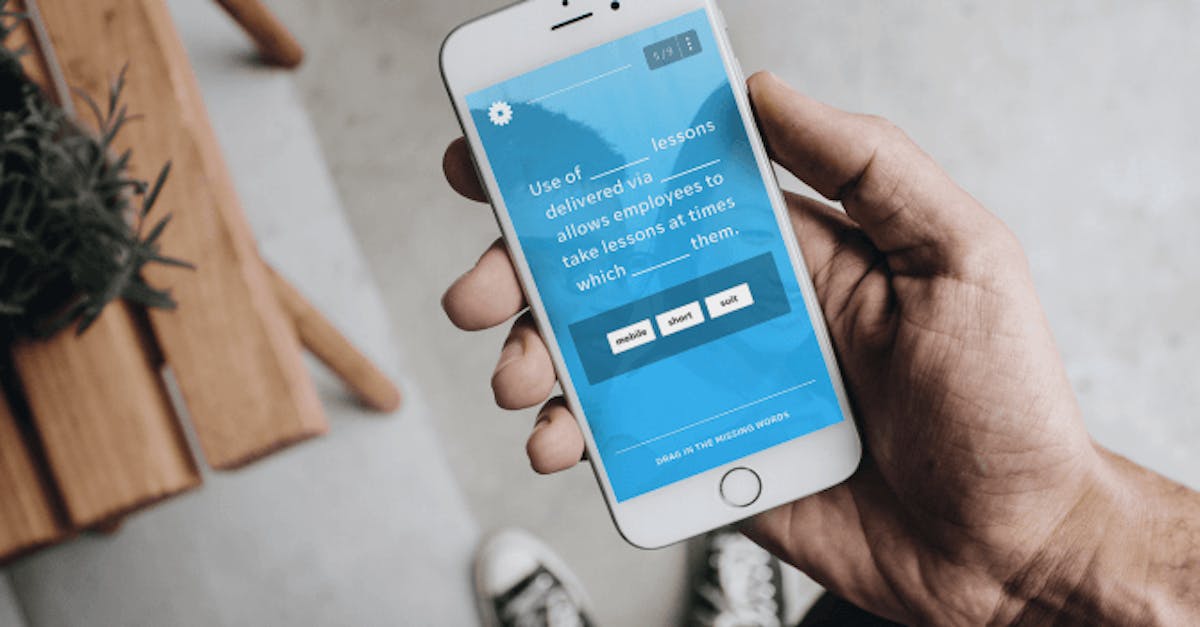How Mobile Microlearning is Making Us Learn Better

Mobile microlearning provides an outlook into the future of employee training. The digital age in which we are all inhabitants of requires us to stay up to date with the latest technological trends to effectively advance through vital employee training.
Microlearning is characterised by learning released in small bursts for boosted knowledge retention in employees. Mobile microlearning allows for employee training on-the-go, making it more convenient in the everyday lives of employees.
The convenience and flexibility provided by mobile microlearning modules instils motivation in employees to progress through more training than they otherwise would in a traditional learning setting. Content is more applicable to the roles of employees in a modern corporate setting, whereby employers understand the shifting needs and preferences of their employees.
Let’s look at some of the most unique and beneficial features microlearning can offer your company.
1. Engaging Course Content Through Gamification
Course content is instantaneously made more engaging through the implementation of gamification in your employee training strategy. Incorporating gaming elements, such as leader boards, point scores, star bars and real prizing, into courses immediately boost the productivity and performance of employees despite age and expertise.
2. Increased Knowledge Retention Through Spaced Repetition
Knowledge retention is drastically increased through the consolidation of information via spaced repetition. Spaced repetition is the basis of microlearning, whereby information is strategically and systematically exposed to learners in intervals, in time that best suits their brain. Spaced repetition avoids cognitive overload, referring to the potential excessive information fed to learners, causing them to retain 0% of information. Considering the average human brain can only withhold 3-5 new pieces of information at any given time, spaced repetition is essential to integrate in any employee training app.
3. The Power of Anytime, Anywhere Through Cloud-Delivery
Cloud-delivery systems enable users to access their training courses anywhere and anytime that suits them. This means that valuable working hours do not need to be taken out of their day to progress through mounds of training. Instead, users can complete their 3-5 minute microlessons on their commute to and from work, when having some downtime, or perhaps on a flight with EdApp’s offline mode.
4. Learning Flexibility and Compatibility Through Mobile Learning
Effective mobile-based learning management systems provide users with maximum flexibility and compatibility, enabling them to become more productive and significantly ‘up’ their performance. An LMS with a good authoring tools allows content to be compatible on a range of mobile devices, as well as on Android and iOS, without jeopardising the quality or responsiveness of course material.
5. Course Responsiveness Through Template Library
LMS’s that offer template libraries allow for a more seamless learning strategy-building experience. EdApp offers a library filled with a plethora of responsive and ready-made templates for the success of your training strategy. Our templates are designed and curated to offer the best and most immersive experience for your employees.
Want to learn more about implementing microlearning into your company strategy?
If you’re fed up of dealing with complex authoring practices and ineffective learning, get in touch at enquiries@edapp.com. You can also try EdApp’s Mobile LMS and authoring tool for free by signing up here.
You might also be interested in this article:
Author
Guest Author Daniel Brown
Daniel Brown is a senior technical editor and writer that has worked in the education and technology sectors for two decades. Their background experience includes curriculum development and course book creation.
